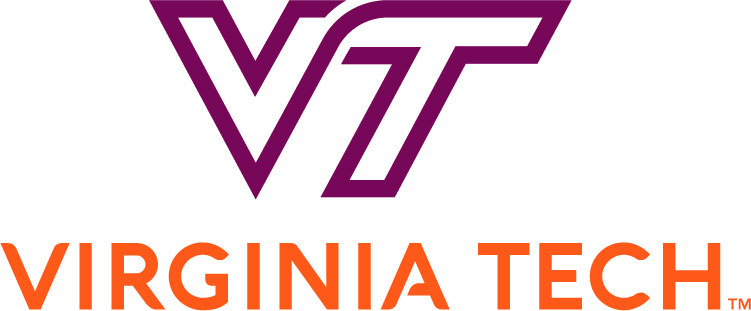Newswise — Virginia Tech has announced the "Energy Efficiency Partnership of Greater Washington (www.eep.ncr.vt.edu/)," a landmark initiative to tackle the problem of global warming by retrofitting existing buildings with energy efficiency products designed to decrease energy use and significantly cut carbon emissions.
In addition, retrofitting provides tenants and building owners with improved energy infrastructure and, in most cases, increased tenant comfort.
The university's core partners are energy efficiency financier, Hannon Armstrong, which has already committed $500 million to the initiative during the first five years, and Pepco Energy Services. A growing number of associate partners, including urban developers, local councils, and architects are also committing to the initiative.
As an unbiased facilitator, Virginia Tech will work to develop program momentum and governance, as well as taking on the task of documenting a partnership blueprint for future replication. This would include moving forward with sustainability projects on the university's campus in Blacksburg.
According to Virginia Tech President Charles Steger, the university has built this partnership as a platform to create hands-on learning tools for students, civic groups, and industry practitioners, as well as a way of identifying long-term cross-disciplinary research opportunities around the urgent theme of energy efficiency.
Hannon Armstrong, will finance the retrofitting at no capital cost to building owners and county governments. The company will see a return on its investment over a long-term period via the accrued electricity savings.
Pepco Energy Services will conduct energy audits, supply materials, and perform building retrofits and guarantee the energy savings of the implemented retrofit projects. In addition, Pepco Energy Services will provide renewable energy options to interested parties.
Steger said, "Climate change is a global problem that must be addressed locally. There are many old structures in greater Washington that are ready to be audited and retrofitted, but until now there has been very little incentive and few resources to drive change."
"As a land grant university, Virginia Tech has a history of civic engagement on technology issues. As energy-saving issues move urgently to the forefront, we view this partnership as a natural and relevant step in fostering our missions of outreach, research and education," said Steger.
Speaking about his company's commitment to the partnership, Jeff Eckel, CEO, Hannon Armstrong, said, "As the U.S. lurches to a consensus on the importance of addressing climate change, energy efficiency has a hard time registering in the public conscience to other, more photogenic approaches such as wind and solar, which do have a valuable role to play, and ethanol, which is marginal at best. Virginia Tech's leadership is bringing valuable balance and focus to the dialogue of how the greater Washington region can best approach this urgent theme" .
David Weiss, president and chief operating officer of the Energy Services Division of Pepco Energy Services added, "As one of the nation's leading providers of green energy and energy efficiency solutions, Pepco Energy Services is extremely happy to be a part of this initiative, especially in our own backyard " where there is an estimated $3.6 billion of annual energy savings potential. We hope it will bring greater focus to an immediate need for action."
A growing number of associate partners have already committed to supporting the goals of the Energy Efficiency Partnership of Greater Washington:
Arlington County government will work to identify public buildings for retrofitting as well as align partnership goals with new and existing civil outreach projects addressing energy efficiency and climate change.
Commercial property owners/developers JBG and GVA Advantis will help identify or provide facilities for retrofits.
Leo Daly, a leading architecture and engineering firm with a green design focus, will work on developing retrofit architecture and infrastructure at the design phase where relevant on a project-by-project basis.
The National Building Museum is providing discussion forums and physical space for outreach and educational purposes.
The Energy Efficiency Partnership of Greater Washington (http://www.eep.ncr.vt.edu/) has been established as a flexible and open platform that welcomes the support and expertise of new partners in the areas of financing, energy services, urban development, local councils and civic groups. The partnership will also actively seek future opportunities for expanding and replicating the project in regions across the U.S.
Founded in 1872 as a land-grant college, Virginia Tech is the most comprehensive university in the Commonwealth of Virginia and is among the top research universities in the nation. Today, Virginia Tech's eight colleges are dedicated to quality, innovation, and results through teaching, research, and outreach activities. Visit www.vt.edu for more information.
Pepco Energy Services, Inc. is a wholly-owned subsidiary of Pepco Holdings, Inc.. (NYSE:POM) and a leader in providing commercial, institutional, government and industrial customers with competitive electricity and natural gas supply and energy efficiency services. Pepco Energy Services, Inc. is not the same company as Potomac Electric Power Company, and prices and services of Pepco Energy Services, Inc. are not set by the Public Service Commission.
Hannon Armstrong is a leading investor in energy efficiency and renewable energy nationwide, offering a broad array of financial solutions for government, institutional and commercial energy users. For over 25 years, we have provided financing for Fortune 500 companies and their subsidiaries selling energy, information technology, and telecommunications services to end users. With a variety of proprietary investment vehicles, we help our clients increase revenues by providing the contractual expertise as well as the required investment to get transactions to closure.
